The Defence value of excellence is described as ‘The willingness of character to strive each day to be the best I can be, both professionally and personally’ (Defence, Values and Behaviours). Where have you seen this value of excellence demonstrated at its best?
Excellence is part of our ANZAC heritage. Gallipoli was a tactical defeat but the ANZACS showed tactical excellence in retreat, withdrawing 35,000 soldiers off ANZAC Cove without the Turks realising. Lance Corporal Scurry DCM, with help from Private Lawrence, invented the ‘drip’ or ‘pop off’ rifle with two ration tins – one dripping water into another to later pull the trigger. This was an early demonstration of excellent resourcefulness and creative solutions.

Towards the end of World War I, a grudging British general commented, ‘If the world fell apart tomorrow, an Australian would put it back together … with three bits of string and a length of fencing wire.’ We work with different equipment but diggers of today still need that excellent approach to innovation and adaptability.
When asked what excellence means, Recruits tell me that excellence for them is about doing the best you can; being the best ‘you’; learning new skills and continuous improvement; striving to become a better version of yourself; always looking to perform at high standards; performing all tasks and duties to the best of your ability; working well without seeing recognition; and showing a high standard of workmanship – but not trying to be the hero – just doing your part.
Excellence can be seen in small details – in working well even when not being observed, performing beyond your rank, but also in commitment to healthy work/home/life balance. It is seen in achieving records or Personal Bests at PT, and being proactive, innovative and finding creative solutions to challenging dilemmas. One digger suggested ‘excellence is a habit not an act’, motivated by David Goggins’ encouragement to improve.
Learners have told me they appreciated the excellence of an LT who led them on a road trip to a sports event and navigated setbacks and literal roadblocks through COVID and bad weather. Other IETs were impressed when a CO took their Chief Instructor role seriously enough to help a trainee face their fears and persevere to achieve a swim test. Others notice senior NCO staff who have advanced but hold themselves to a high standard alongside learners. An officer said they were impressed by the excellence of recently graduated learners on an exercise when comms was not working except for the last emergency option, and they systematically without being told went back to basics, worked late, rebuilt the whole communications mission plan and got it working for the Commander.
We train to levels of excellence now so we can achieve levels of excellence when the proverbial hits the fan. If not, people can die. Like all Defence values, the stakes are deadly serious.
Read what ADF Leadership says about excellence: It says character is foundationally important in leadership. But we also need excellence in the way we do our job – our professional competence:
“Professional competence is an inescapable requirement for a leader. A leader may have the very best character, a positive disposition and always a willingness to lead. This is not enough. If not combined with professional competence, the team may appreciate you as a human being but they will not trust you to lead them into harm’s way.
The cornerstone of confidence in battle is your subordinates’ faith that you have mastered the technical and tactical aspects of your job. Without this basic foundation you will not be able to build the team cohesion necessary to succeed.
You must know how to do your own job better than those you lead. The idea that a leader of good character, regardless of professional competence, will carry the day is, and always has been, nonsense. Of course, none of us have all the answers and none of us have finished our learning. Seeking advice from your team is never a sign of weakness. On the contrary, they will consider it a sign of your confidence in them.
We all have more to learn – this is why Defence is constantly helping us learn to do our roles better, and to be ready to do the boss’ role. To learn we need to be committed to self-improvement, to life-long learning, to acknowledge the gaps in what we know and identify a path to develop those directions.
How can you better adopt values and excellence in your work? Sometimes it is about perspective. Matthew Malcolm in ‘How Can Army’s Values Permeate Army’s Workforce’ urges integrating Defence values in all we do and teach, asking ‘How could I bring excellence into this task?’ A driving instructor might frame their role not simply as ‘My job is to teach truck driving’ but ‘My task is to prepare soldiers to win the next war, by teaching truck driving in ways that foster our values and behaviours.’ For Signallers it might be not just ‘My job is to teach radios’ but ‘My contribution is to help the next generations of Sigs to have competence and confidence to keep Commanders in quick communication with their troops so we can win the battle with the least losses.’
Meditation Exercise #1: What does the Defence value of excellence mean to you and where have you seen it embodied and lived out at its best?
Historical inspiration – CPO ‘Buck’ Rogers GC

Chief Petty Officer ‘Buck’ Rogers demonstrated excellence in his leadership on a dreadfully difficult day. On 10 February 1964 he was one of 82 people who died on the destroyer HMAS Voyager after being struck by the aircraft carrier HMAS Melbourne. They were conducting exercises off NSW and the collision was the worse peace-time naval disaster in Australia’s history. The collision cut Voyager in two. Rogers was trapped in darkness with more than 50 sailors in a forward compartment as it sank.
In moments of crisis one of the best gifts a leader can give their team is non-anxious presence and calm leadership. Rogers took control in the disaster and brought calm. Not everyone was going to be able to escape through the small accessible hatch, he realised, and that as a large man he had no chance. A survivor commented, ‘He was more intent on getting the younger chaps out first.’ That forward section sank ten minutes after impact. Survivors recounted that Rogers was heard leading his doomed shipmates in a prayer and hymn in their final moments.
CPO Rogers was posthumously awarded the George Cross 'for organising the escape of as many as possible and encouraging ... those few who could not escape ... to meet death alongside himself with dignity and honour'. His portrait is in the Australian War Memorial and his is an inspiring story of character in action in ADF Leadership.
Meditation Exercise #2: Where do you see the Defence value of excellence in the actions of CPO Rogers’ actions, and other Defence stories that inspire you?
Contemporary heroes – Kapooka instructors
I feel privileged to have worked with instructors at several Training Establishments including Kapooka. I regularly ask learners where they have seen Defence values at their best. It is terrific to hear them describe different actions of their staff.
One recruit, from a minority cultural and religious background, told me his Corporal had said to others in the platoon, ‘If anyone is not treating Private D with respect let me know.’ The Corporal also said to Private D as he struggled with new skills, ‘If you fail, it is on me not you.’ The Corporal also said he was going to help him get through with extra support.
A female recruit said she appreciated a female instructor supporting her and other female recruits with empathy, including running the BFA with them and coming in on days she was not rostered to offer extra support for challenging lessons.
Another recruit especially appreciated the mentoring of their staff, including patient and supportive feedback on areas they and other recruits were struggling with, and generous advice about Defence service and career aspirations. He also said he learned values of respect and service from a Corporal who advocated for female recruits and spoke up when they were not shown appropriate respect.
The value of instructors who go above and beyond in embodying Defence values with recruits stays with them and teaches them as much or more than classroom lessons.
OCDT Farida Dad speaks positively of her instructors teaching weapon drills in ADF’s Character Doctrine and on video. OCDT Dad thought weapons training was her weakness. She was back squadded after not passing a live fire test. She feared and hated range practice and so requested discharge papers. At her next shoot, her Section Commander said, ‘You shoot just fine, all you need is a bit of work on your breathing, trigger and adjustment.’ The Officer Cadet told herself, okay, if that is all I need to work on I will practice those, and then I will be able to shoot just fine. The instructor’s words of encouragement gave her hope and energy. Instead of asking to discharge, she aced her final assessment. The instructor could have shouted negative criticism but instead displayed excellent instructor skills and gave her three elements to focus on alongside an injection of self-belief. That is part of what every recruit needs to become a solider.
The other part of now Lieutenant Dad’s story was that she was one of many immigrants who have proudly adopted Australia as a new country and for whom Defence has proudly adopted them. You can read more about her story in the article ‘Soldier’s commissioning fulfils promise to her father’. LT Dad and her family are from the Hazara people, a minority group in Afghanistan. They escaped Afghanistan and the Taliban regime when she was six years old. When she was commissioned in July 2024 she commented: ‘For me, it’s all about service. I’m proud to be Australian, and proud to be an officer in the Australian Army.’ Her story and embodiment of Defence values is inspiring, but so too is the way her instructors demonstrated Defence values including respect of OCDT Dad’s background and their excellence in instruction.
Meditation Exercise #3: How could you and your team develop a similar posture of excellence in your teamwork and instruction?
Movie illustration – Apollo 13
Movies can powerfully inspire values-based character (see Positive Psychology at the Movies). For a terrific movie scene that illustrates excellence watch this scene of excellence in innovation and teamwork from Apollo 13 (1995) (best viewed off the DPN):
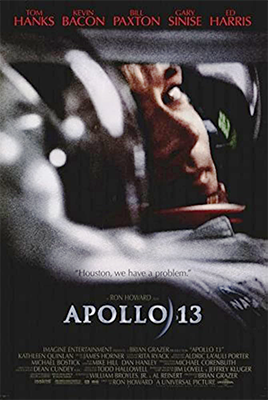
‘Apollo 13: Failure is not an option’ (4:42)
Meditation Exercise #4: What can Defence members learn about the value of excellence from this scene?
Meditation Exercise #5: What other movies and scenes best illustrate and inspire excellence for you?
Scenario – Weapon drills
Imagine yourself in this scene and discuss your responses. (This is a scenario Chaplains developed for Land Combat College character training.)
Two soldiers are cleaning their weapons. Soldier A walks away to get some oil and leaves Soldier B to piquet their disassembled weapon. Soldier B, who had misplaced their gas piston during the training exercise, decides to take Soldier A’s gas piston whilst Soldier A is away. When reassembling his weapon, Soldier A realises their gas piston is missing. Nonetheless, Soldier A hands the weapon in without the piston and says nothing.
Meditation Exercise #6: What actions would you take in this situation? In what ways can Defence values inform your response? Consider what is a good soldiering response.
A – Soldier A should report the missing gas piston.
B – Soldier B should have reported their missing gas piston.
C – Soldier A should confront Soldier B to deal with it at the lowest level.
D – All of the above.
E – Choose another alternative: __________________________________________.
Reflection exercise – Excellence reps & sets
Defence values and excellence are not taught in a classroom but learned in practice. This exercise is about having ‘reps and sets’ that can helps to build your character muscle memory. As a drill over the coming day, when you are faced with a decision, ask yourself:
‘What will I as a person of character guided by EXCELLENCE do here?’
Take a mental note of how excellence guided your actions, note it in your journal and/or be prepared to discuss your lesson with your team.
Discuss this question now, or leave it later for review:
Meditation Exercise #7: In what ways have you recently been guided by the Defence value of excellence?
Other activities
If you are interested in other scenes that illustrates the Defence value of excellence, watch (best viewed off the DPN):
‘Top Gun Maverick Scene: Maverick Proves the Mission can be Achieved’ (3:39)
‘The Legend of Bagger Vance Clip 2 Seeing the Field’ (5:18)
‘Sister Verdun Bernice Sheah (AWM Last Post reading 15 Nov 2024)’– a moving story of this RAAF nurse who embodied Defence values of service in laying down her life and excellence in her preparation and professional development. This reading also commemorated the 80th anniversary of the Australian Women’s overseas service. Watch the whole service or I am privileged to share her story on the YouTube video (18:20-26:45).
If interested in further reading about training Defence values see Sam Cox’s Fitting the ADF Values into your Training Programme as a Junior Leader.
If you enjoyed this activity, why not try other Learning Packages on Service, Courage, Respect or Integrity in the Forge, or an introductory Quick Military Education (QME) session on ADF Values or other QMEs available on The Cove?
Comments
If you have suggestions for improvements – other readings, scenarios, movies, discussion points, delivery methods, or if you have seen this value embodied by someone – or if you just want to provide feedback, please login to comment.
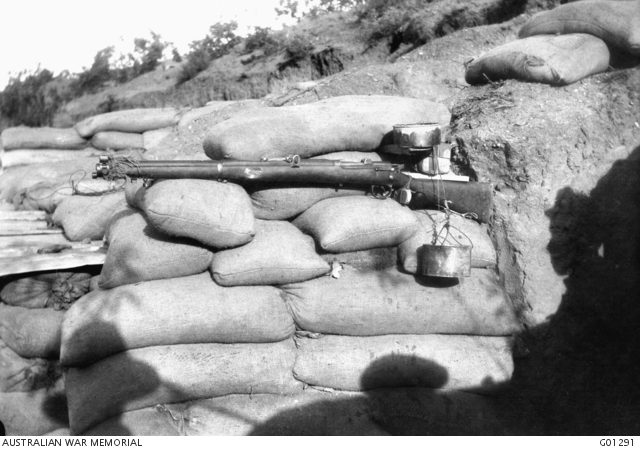

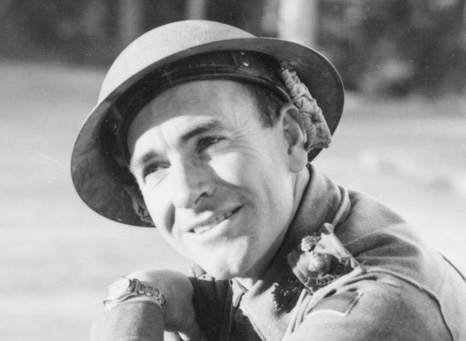
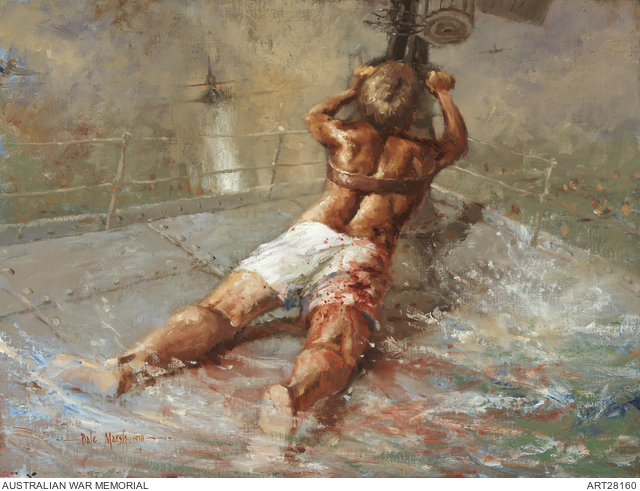

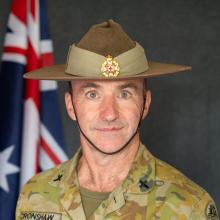
Comments
Start the conversation by sharing your thoughts! Please login to comment. If you don't yet have an account registration is quick and easy.